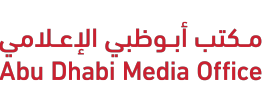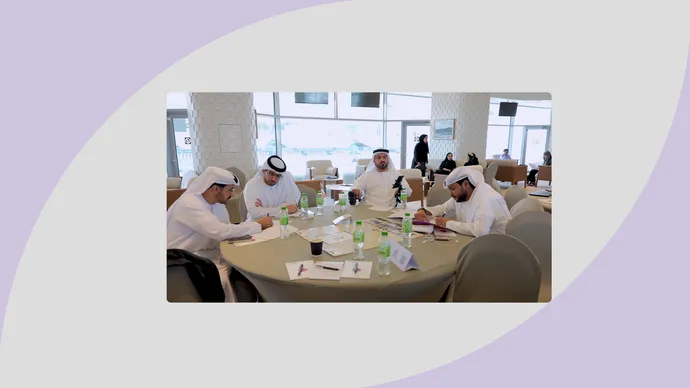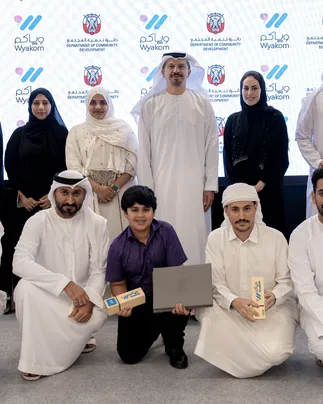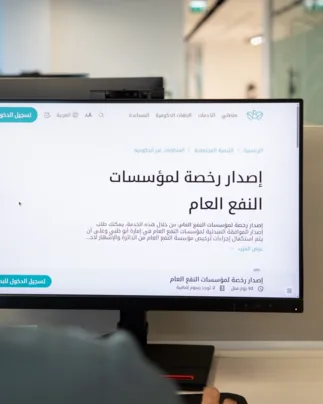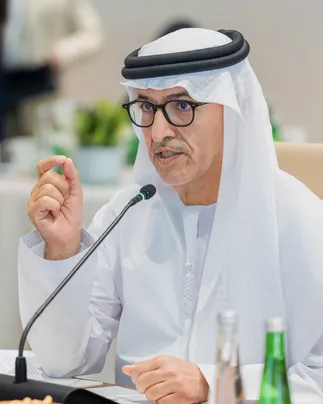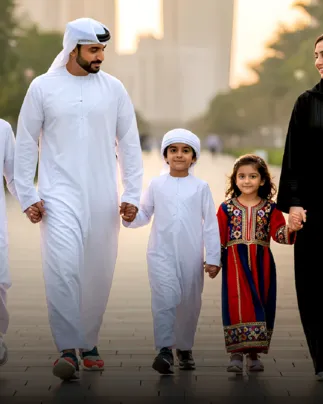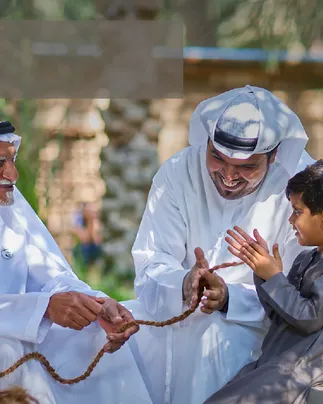The Department of Community Development – Abu Dhabi organised a series of interactive orientation workshops introducing the Abu Dhabi Excellence Award for People of Determination Inclusion – Damj. The sessions welcomed representatives from government, private, and third sector organisations across the emirate.
These workshops aim to empower participating organisations to develop inclusive strategies and initiatives in line with global best practices. This aligns with Abu Dhabi’s vision of building an inclusive society that provides equal opportunities for all. The sessions also introduced participants to the award’s pillars, categories, and objectives, along with its assessment tool, participation criteria, and nomination process, that are all designed to foster a shared understanding and strengthen institutional inclusion efforts across workplaces, community services and accessibility.
The workshops featured engaging sessions that outlined the award’s role in recognising and motivating entities to adopt inclusive services and equitable employment practices. The ultimate goal is to ensure the sustainability of inclusive practices that empower People of Determination in every aspect of life.
The award is expected to engage over 250 entities across various sectors to provide inclusive, accessible environments – both physical and digital. It also seeks to enhance economic participation for People of Determination through more than 80 entities, offering over 500 inclusive services across six key sectors, representing a true commitment to fostering a culture of inclusion and equality.
One of the workshops highlights included inspiring personal testimonies from members of the People of Determination community. They shared their life experiences and the ongoing challenges they face in areas such as infrastructure, transport, accessibility, and education. They also emphasised the significant impact of multi-sector efforts from government, private, and third-sector partners in improving the quality of life for People of Determination and their families.
The workshops also included a comprehensive presentation of the award’s structure, which is built around three main pillars and 10 categories. The first is the Inclusive Services pillar, which features six categories covering the industries of health, education, tourism and entertainment, transportation and mobility, and third sector services. The second is the Inclusive Employment pillar, which includes two categories recognising the best inclusive work environment for employing People of Determination. The third pillar focuses on Accessibility, with two categories honouring entities that excel in providing both physical and digital accessibility.
The sessions further highlighted the specific criteria and requirements for each pillar and service, in addition to outlining the stages of assessment and the nomination submission process, supported by vivid examples for each service.
The sessions also provided insights into evaluation criteria, nomination requirements, and examples illustrating the kinds of initiatives eligible for each category.
Additionally, third-sector organisations presented models of their inclusive services, demonstrating their pivotal role in supporting People of Determination across different aspects of life. These presentations served as a valuable platform for knowledge exchange and collaboration among attendees.
Her Excellency Dr Layla Al Hyas, Executive Director of the Community Development Sector at the Department of Community Development, affirmed that the Damj Award is a vital enabler for sustaining inclusive environments and practices. She described the award as a strategic driver that encourages entities to adopt forward-thinking policies promoting equal opportunity and empowering People of Determination as active partners in development.
Dr Al Hyas urged all public, private, and third-sector entities to leverage this opportunity to submit impactful, innovative initiatives that make a real difference in the lives of People of Determination. She emphasised that excellence in inclusion is not only about meeting standards but about creating sustainable, innovative, and measurable change. She said: "We are confident in Abu Dhabi’s entities and their ability to lead inclusive transformation. Every initiative submitted today marks a step toward a more inclusive society."
To conclude the workshop, the award team hosted a Q&A session, responding to participants’ inquiries about the nomination process and requirements.
It is worth noting that Submissions for the Damj Award will open on 1 July 2025, and continue through 31 August 2025, followed by an assessment phase in September and October, with the winners to be honoured at an extraordinary ceremony in early 2026.
